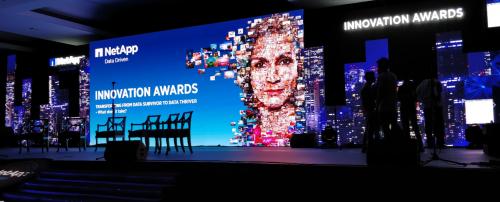The Power of Production Display Boards

In today's fast-paced manufacturing landscape,
efficiency, communication, and coordination are paramount to success. Production
Display Boards have emerged as indispensable tools that facilitate
these essential elements by providing real-time visibility into production
processes. In this comprehensive blog, we will delve into the world of
production display boards, exploring their functions, benefits, applications,
and how they play a pivotal role in optimizing operations and driving
productivity.
- The Essence of
Production Display Boards:
A production display board is a visual communication tool
that offers a centralized and easily understandable snapshot of an
organization's production processes. It serves as a real-time information hub,
conveying critical data to employees, supervisors, and stakeholders. Through a
combination of visual elements, metrics, and key performance indicators (KPIs),
production display boards provide a clear overview of production targets,
progress, and potential issues.
- Functions and Features:
Production display boards offer a range of functions and
features that contribute to their effectiveness:
a)
Real-Time Updates: Production display boards are connected to
data sources, ensuring that the displayed information is always up-to-date and
reflects the current state of operations.
b)
Visual Metrics: Utilizing graphs, charts, and color-coded
indicators, production display boards present complex data in an easily
comprehensible manner, enabling quick decision-making.
c)
Goal Tracking: Production goals and targets are prominently
displayed, motivating employees and promoting a sense of accountability.
d)
Status Alerts: In case of deviations or issues, production
display boards can trigger alerts to inform relevant personnel, allowing for
swift corrective actions.
e)
Customization: Display boards can be tailored to specific
production processes, departments, or even individual roles, ensuring relevance
and accuracy.
- Applications across
Industries:
The versatility of production display boards makes them
indispensable across various industries:
a)
Manufacturing: Production display boards help optimize
manufacturing processes by tracking production rates, identifying bottlenecks,
and ensuring on-time deliveries.
b)
Automotive: In automotive assembly lines, these boards
provide real-time updates on vehicle production stages, helping teams stay
synchronized and meet production targets.
c)
Pharmaceuticals: Pharmaceutical companies use production
display boards to monitor batch processing, ensure compliance, and maintain
stringent quality control.
d)
Food and Beverage: Production display boards aid in managing
food processing lines, ensuring product quality, and minimizing waste.
e)
Electronics: In electronics manufacturing, display boards
assist in monitoring product assembly, quality testing, and component
inventory.
- Benefits of Production
Display Boards:
The adoption of production display boards yields numerous
benefits that contribute to operational excellence:
a)
Enhanced Visibility: Production display boards provide real-time
visibility into production processes, fostering transparency and reducing
information gaps.
b)
Improved Communication: By conveying information visually,
display boards facilitate clear and concise communication across all levels of
the organization.
c)
Increased Accountability: Clearly displayed targets and metrics
encourage employees to take ownership of their tasks and contribute to overall
productivity.
d)
Rapid Decision-Making: Accessible and comprehensible data
enable quick decisions, enabling timely responses to production challenges.
e)
Continuous Improvement: Display boards highlight areas for
improvement, encouraging teams to identify and implement process enhancements.
f)
Employee Engagement: Visual displays create a sense of
involvement and engagement, motivating employees to work collaboratively
towards common goals.
- Implementing Effective
Production Display Boards:
To ensure the successful integration of production
display boards, consider these key steps:
a)
Define Objectives: Clearly outline the goals and objectives of
implementing production display boards, ensuring alignment with overall
business strategies.
b)
Select Relevant Metrics: Choose KPIs and metrics that accurately
reflect the performance and efficiency of your production processes.
c)
Data Integration: Establish seamless connectivity between
production display boards and relevant data sources, such as ERP systems or
production databases.
d)
Design for Impact: Create visually appealing and easily
understandable layouts that convey critical information at a glance.
e)
Employee Training: Provide comprehensive training to employees
on how to interpret the information displayed and use it to optimize their
tasks.
- Future Trends and
Innovations:
As technology evolves, production Display Boards
are likely to incorporate more advanced features:
a)
Integration with AI and IoT: The integration of
artificial intelligence (AI) and Internet of Things (IoT) technologies can
enable predictive analytics and real-time optimization.
b)
Augmented Reality (AR): AR-powered production display boards
could offer interactive overlays and real-world data visualization for enhanced
decision-making.
c)
Mobile Accessibility: Mobile apps and remote access capabilities
could allow stakeholders to monitor production processes from anywhere,
facilitating on-the-go decision-making.
Conclusion:
Production display boards are not just tools; they are
catalysts for transformation in the manufacturing realm. By providing real-time
insights, fostering communication, and promoting accountability, these dynamic
displays optimize operations, boost productivity, and pave the way for
continuous improvement. As industries continue to evolve and innovate,
production display boards are set to play an even more pivotal role in shaping
the future of efficient and streamlined manufacturing processes.

Comments